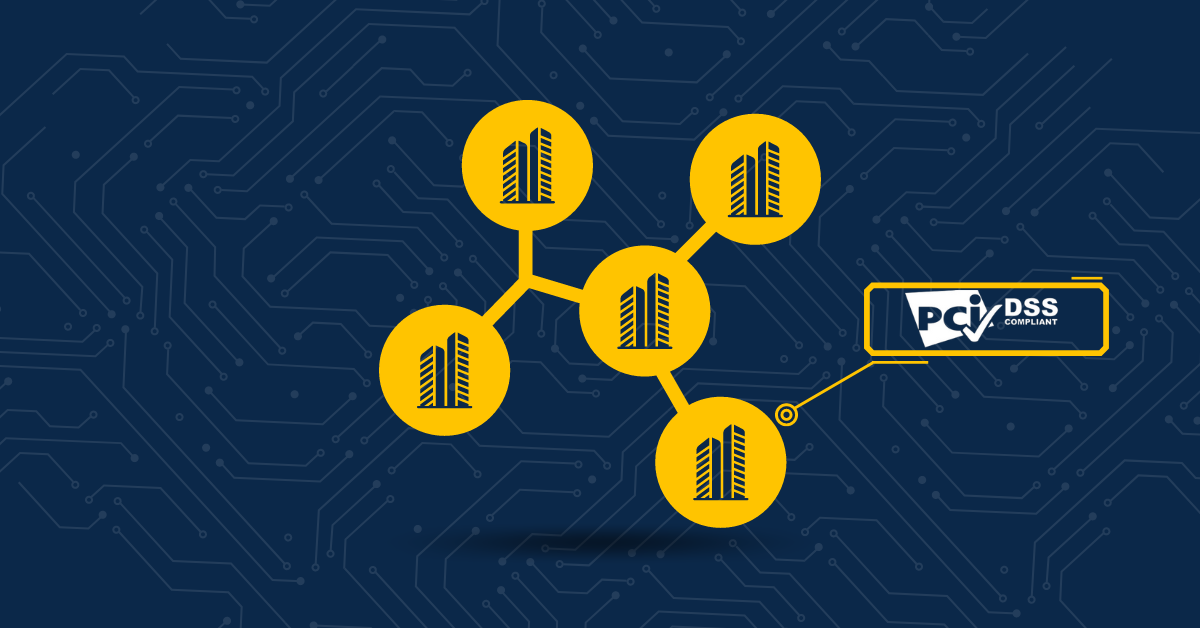
Most people don’t take the time to think about how credit card purchases actually work.
Customers can whip out the plastic almost anywhere, swipe, and be on their merry way. However, for these purchases to happen, businesses must verify every transaction.
How do they do this? They adhere to the Payment Card Industry Data Security Standard or PCI DSS.
PCI DSS began in the early 2000s. But even today, businesses need help understanding this protocol and why compliance is vital to business health. In the worst cases, companies that fail PCI DSS audits face massive fines and sometimes even closure.
Below is a brief guide to PCI DSS. It explains why it’s an essential part of modern transactions and ten common PCI DSS-related misconceptions businesses frequently make that land them in hot water.
The global eCommerce business reached $6.8 trillion in 2023. Most of these payments are through credit cards. Although cybercrime remains rampant regardless of regulations, it’s safe to say that the eCommerce industry would be much worse off without PCI DSS.
PCI DSS is a set of security standards established to protect sensitive financial information during payment transactions. Major credit card companies, including Visa and American Express, developed the guidelines.
Ultimately, PCI DSS outlines requirements for businesses to conduct secure credit card payments. It establishes rules on several elements, including:
There’s no way around it: Any businesses processing credit card transactions must comply with PCI DSS, as it safeguards customer data, prevents data breaches, and builds consumer trust.
Non-compliance often results in significant security gaps; left unchecked these gaps can result in wide scale financial data theft. The result can damage a company’s customer loyalty and public reputation.
So, adhering to PCI DSS is more than a regulatory obligation. It’s a proactive measure to ensure the security and integrity of all card-based transactions. It’s also vital to demonstrate a commitment to protecting customer privacy and maintaining a secure payment ecosystem.
PCI DSS is a critical aspect of running a successful business. Yet, only about 28% of businesses are fully PCI DSS compliant. The reason is that many carry misguided notions about what constitutes the need to comply.
Below are the top ten myths businesses must dispel about PCI DSS immediately.
Some businesses mistakenly believe achieving PCI DSS compliance is a one-time affair. In reality, compliance is an ongoing process that requires continuous monitoring, updates, and adaptation to evolving security threats.
Also, PCI DSS standards and best practices are frequently revised and updated, making it imperative that businesses stay abreast of new trends, regulations, and solutions for maintaining full compliance and safe transaction environments.
Businesses wrongly assume that only their payment processing systems fall within the scope of PCI DSS. Rather, the standard applies to any additional system within the network that interacts with cardholder data. This scope includes networks, servers, and employee workstations.
Size has nothing to do with PCI DSS compliance. Small businesses may think they can fly under the radar of PCI DSS requirements. However, compliance is necessary for any organization that processes, stores, or transmits credit card information.
Full compliance doesn’t equal full security. Yes, PCI DSS compliance establishes a baseline. However, businesses must exceed the minimum requirements to address specific risks and protect against emerging threats. This includes investing in DevSecOps to ensure robust monitoring and security throughout web, mobile, and physical transactions.
Some businesses don’t use their peripherals, failing to look at the security practices of third-party service providers. If these providers handle cardholder data, companies are responsible for ensuring their compliance with PCI DSS.
Don’t think that outsourcing payment processing means outsourcing PCI DSS responsibility. The responsibility for compliance remains with the business, regardless if certain aspects are outsourced.
Neglecting to change default passwords or configurations on cardholder data systems is a common and costly oversight. Using better passwords is a great way to boost security, as 63% of data breaches involve weak or default credentials.
Transaction environments require constant monitoring. However, some businesses may infrequently perform security assessments or neglect to conduct penetration testing. So, regular assessments are essential to identify and address vulnerabilities before hackers do.
Storing more cardholder data than necessary increases the risk and scope of PCI DSS compliance. Businesses must minimize data storage and can accomplish this by establishing secure methods for routine data disposal.
A huge misconception is assuming that understanding PCI DSS best practices only concerns IT or security teams. With this mindset, businesses fail to offer company-wide training and awareness programs, significantly increasing the chances of compromised cardholder data.
The rule here is simple: All staff that handles card transactions must be in tune with best practices and PCI DSS compliance.
Ignoring or misunderstanding these aspects of PCI DSS can lead to severe consequences. So, businesses must view compliance as an ongoing team effort toward achieving data security rather than a department-specific affair.
At the heart of a well-functioning PCI DSS protocol lies a thoughtful and well-rounded DevSecOps approach. Any business relying on credit card transactions can’t see digital security as an area for cutting corners, given the cost of a data breach far outweighs what it takes to defend against one.
In 2023 alone, the cost of a data breach was $4.45 million. Don’t face the same fate as these businesses. Invest in DevSecOps wisely and consider partnering with PreEmptive.
PreEmptive is a full-scale DevSecOps service offering top-notch automation and assessment solutions that help businesses fashion a holistic approach to digital security and obfuscation. Learn more about how PreEmptive helps businesses achieve the best PCI DSS strategy on track. Sign up today for a free trial.